#James Factora
Explore tagged Tumblr posts
Photo

Imanitwitaho Zachee, a Trans Woman from Rwanda, Killed in Kentucky The killer, a coworker, turned himself in. https://www.them.us/story/imanitwitaho-zachee-trans-woman-rwanda-killed-kentucky
1 note
·
View note
Text
Reading List
to be updated constantly
Articles:
"Why Women Online Can’t Stop Reading Fairy Porn" by C.T. Jones for Rolling Stone
"They Called 911 for Help. Police and Prosecutors Used a New Junk Science to Decide They Were Liars." by Brett Murphy for ProPublica
"‘I Think My Husband Is Trashing My Novel on Goodreads!’" by Emily Gould for The Cut
"Woman in Retrograde" by Isabel Cristo for The Cut
"The unwanted Spanish soccer kiss is textbook male chauvinism. Don’t excuse it" by Moira Donegan for the Guardian
"I Started the Media Men List" by Moira Donegan for The Cut
"What Moira Donegan Did for Young Women Writers" by Jordana Rosenfeld for The Nation
"The Key Detail Missing From the Narrative About O.J. and Race" by Joel Anderson for Slate
"The Coiled Ferocity of Zendaya" by Matt Zoller Seitz for Vulture
"OJ Simpson died the comfortable death in old age that Nicole Brown should have had" by Moira Donegan for The Guardian
"Norm Macdonald Was the Hater O.J. Simpson Could Never Outrun" by Miles Klee for Rolling Stone
"Trans Stylists and Makeup Artists Are Reshaping Red Carpet Looks. Will They Get the Credit They’re Due?" by James Factora
"The ‘perfect Aryan’ child used in Nazi propaganda was actually Jewish" by Terrence McCoy for The Washington Post
"There Are Too Many Books; Or, Publishing Shouldn’t Be All About Quantity" by Maris Kreizman for Literary Hub
"An O.J. Juror on What The People v. O.J. Simpson Got Right and Wrong" by Ashley Reese for Vulture
"Super Cute Please Like" by Nicole Lipman for N + 1 Magazine
Essays:
Not That Bad: Dispatches from Rape Culture edited by Roxanne Gay
Creep: Accusations and Confessions by Myriam Gurba
"On Chappell Roan and Gen Z Pop" by Miranda Reinert
"In Memory of Nicole Brown Simpson" by Andrea Dworkin
"My Gender Is Dyke" by Alexandria Juarez for Autostraddle
"Columnists and Their Lives of Quiet Desperation" by Hamilton Nolan
Nonfiction:
Belabored: A Vindication of the Rights of Pregnant Women by Lyz Lenz
The Feminine Mystique by Betty Friedan
This American Ex-Wife: How I Ended My Marriage and Started My Life by Lyz Lenz
The Gentrification of the Mind: Witness to a Lost Imagination by Sarah Schulman
Savage Appetites: Four True Stories of Women, Crime, and Obsession by Rachel Monroe
The Sexual Politics of Meat: A Feminist-Vegetarian Critical Theory by Carol J. Adams
Eros the Bittersweet by Anne Carson
Who Owns This Sentence? A History of Copyrights and Wrongs by David Bellos & Alexandre Montagu
The Once and Future Sex: Going Medieval on Women's Roles in Society by Eleanor Janega
Moby Dyke: An Obsessive Quest to Track Down the Last Remaining Lesbian Bars in America by Krista Burton
University of Nike: How Corporate Cash Bought American Higher Education by Joshua Hunt
What it Feels Like for a Girl by Paris Lees
Female Masculinity by J. Jack Halberstam
The Theory of Everything Else: A Voyage Into the World of the Weird by Dan Schreiber
Stiff: The Curious Lives of Human Cadavers by Mary Roach
Better Living Through Birding: Notes from a Black Man in the Natural World by Christian Cooper
Rivermouth: A Chronicle of Language, Faith, and Migration by Alejandra Oliva
Unlikeable Female Characters: The Women Pop Culture Wants You to Hate by Anna Bogutskaya
Born a Crime: Stories From a South African Childhood by Trevor Noah
Caste: The Origins of Our Discontents by Isabel Wilkerson
The Lady from the Black Lagoon: Hollywood Monsters and the Lost Legacy of Milicent Patrick by Mallory O'Meara
Being Mortal: Medicine and What Matters in the End by Atul Gawande
Stone Butch Blues by Leslie Feinberg
Eyeliner: A Cultural History by Zahra Hankir
Against Technoableism: Rethinking Who Needs Improvement by Ashley Shew
The Wager: A Tale of Shipwreck, Mutiny and Murder by David Grann
Know My Name by Chanel Miller
Empire of Pain: The Secret History of the Sackler Dynasty by Patrick Radden Keefe
Novelist as a Vocation by Haruki Murakami
Rape-Revenge Films: A Critical Study by Alexandra Heller-Nicholas
Fiction:
To the Lighthouse by Virginia Woolf
Middlemarch by George Eliot
Just as You Are by Camille Kellogg
Just Happy to Be Here by Naomi Kanakia
The Misadventures of an Amateur Naturalist by Ceinwen Langley
Family Meal by Bryan Washington
Jurassic Park by Michael Crichton
The Mountain in the Sea by Ray Nayler
Ring Shout by P. Djèlí Clark
My Heart Is a Chainsaw by Stephen Graham Jones
An Island Princess Starts a Scandal by Adriana Herrera
Blackouts by Justin Torres
We Do What We Do in the Dark by Michelle Hart
Never Let Me Go by Kazuo Ishiguro
Less Is Lost by Andrew Sean Greer
The Faithless by C.L. Clark
Project Hail Mary by Andy Weir
The Poppy War by R.F. Kuang
The Disenchantments by Nina LaCour
Everything Leads to You by Nina LaCour
Bliss Montage by Ling Ma
Pachinko by Min Jin Lee
The Institute by Stephen King
Jonathan Strange & Mr Norrell by Susanna Clarke
Frankenstein: Junji Ito Story Collection by Junji Ito
Her Body and Other Parties: Stories by Carmen Maria Machado
Young Mungo by Douglas Stuart
The Dark Forest by Liu Cixin
Snuff by Terry Pratchett
Travelers Along the Way: A Robin Hood Remix by Aminah Mae Safi
Only a Monster by Vanessa Len
16 notes
·
View notes
Text
Latinx people are also receiving racist texts after a previous round of racist messages were sent to Black people last week.
By James Factora November 18, 2024
Excerpt: Diana Brier, a 41-year-old lesbian, told the New York Times that she received a homophobic text message last Sunday. According to Brier, the text instructed her to check in to be transported to an “LGB reeducation camp,” additionally referencing Donald Trump’s inauguration. Brier told the Times that the fact that the messages were sent so soon after the election was “not a coincidence.”
2 notes
·
View notes
Text











Portraits by Alyza Enriquez for "Our Chests Belong in the Sun: An Ode to Transmasc Summer Joy" by Quispe López and James Factora for Them, 25 Aug 2023.
Models in order of appearance are Río Eden (he/they), Kevyn (they/he), Axél (he/him), Chala (they/he/she), and Momo (he/they).
13 notes
·
View notes
Text
Revealing yourself to be a bigoted billionaire incel MAGA puppet is not the display of masculinity Zuckerberg thinks it is…
James Factora, quoting Zuckerberg at Them:
“Both of these things are good. You want feminine energy. You want masculine energy. You’re gonna have parts of society that have more of one or the other. I think that that’s all good. But I do think the corporate culture had swung toward being this somewhat more neutered thing.” And it’s not just the corporate world. The CEO also said that society “has become very, like, neutered, or emasculated.”
0 notes
Text
7 Trans Mutual Aid Funds as presented by Samantha Riedel And a bunch more as presented by Samantha Riedel, James Factora, and Wren Sanders
Note: Didn't double check legitimacy of any of them so there's room and probability that some are scams.
0 notes
Text
ID: First image: The heading news article from them by James Factora, titled "The World's Oldest Drag Queen Has Died at 92"
Second image: A blurry picture of a white man saluting, zoomed in on his face.
Third image: An image of the same man above in a similar position, but now screaming instead of saluting. /End ID.


78K notes
·
View notes
Photo

Kim Petras Says She Owes “Everything to the Gays in Bushwick” “I feel like gay clubs raised me,” she told Seth Meyers in a recent interview. And girl, same. https://www.them.us/story/kim-petras-bushwick-gays
1 note
·
View note
Text


Link: How Stephanie Hsu Brought One of the Year’s Best Queer Characters to Life (James Factora)
“Queerness, as Hsu puts it, exists indelibly in the texture of the movie. That much is clear in the way that she effortlessly portrays Joy/Jobu/Joybu in all her contradictions — Joy’s muted sorrow and rage, Jobu’s almost hedonistic mode of self destruction, and the tensions that arise when those two tendencies clash. Between her stunning performance in the movie and her deeply thoughtful philosophies on acting and other forms of making art, it’s almost hard to believe that Everything Everywhere is her first feature film. It’s clear that Hsu and her ‘undeniable talent’ are here to stay.”
#<3#everything everywhere all at once#stephanie hsu#jobu tupaki#personally think one of the best in MANY years but anyway
7K notes
·
View notes
Text

Stephanie Hsu, interviewed by James Factora
649 notes
·
View notes
Text
[ID: instagram post by @ them shows a photo of a smiling black woman with her blonde curly hair in a bandana. Headline and subheadline say: "A Black Trans Woman Went Missing From a Bahamas Yoga Retreat. Her Family Wants Answers / By James Factora"
Description: "The friends and family of Taylor Casey, a Black transgender woman from Chicago who has been missing in the Bahamas since June 19, are calling for greater public attention to her disappearance. Casey, 42, was last seen at the Sivananda Ashram Yoga Retreat on Paradise Island late last month, per NBC News.
"I just feel like they are hiding something, covering up something, and they separated, isolated my child," her mother told the local outlet, adding that Casey "was the only African American in the instructor's class."
Link in bio for more." End of ID.]


PSA #TaylorCasey
10K notes
·
View notes
Text
Trans Porn Rose 75% In Popularity This Year on Pornhub
Trans Porn Rose 75% In Popularity This Year on Pornhub
https://www.them.us/story/trans-porns-pornhub-popularity Trans-related porn is exploding at the same time trans rights are under fierce attack. BY JAMES FACTORA December 20, 2022 Getty Images It’s the most wonderful time of the year, when that company with an unfathomable amount of access to everyone’s personal data yassifies the numbers into a cute end-of-year roundup complete with…

View On WordPress
0 notes
Text
TV Reboots Have A 'Representation' Problem

Reboots are like Marmite, you either love them or hate them. For some, when a show ends we can mourn it and move on without a desire for it to come back. But for others, the show must go on (literally) and a reboot is a chance to see our favourite TV stories continue.
For me, I’m definitely part of the former. I’d rather binge-watch a show several times than watch a reboot. When several years have gone by and the world we live in has changed, I’d rather my favourite characters stay in the past than come with us to the present.
Part of my problem with reboots, is that the cast often changes and new storylines that feel jarring are introduced in an attempt to diversify the show. Representation in TV and film matters, but inauthentic representation doesn’t help anyone.
The Sex and the City reboot, And Just Like That..., is the latest show to be accused of shoe-horning in faux representation. Producers made an effort to include non-cis, non-white, disabled characters, which could have been great, if their appearances weren’t so one-dimensional.
In their review of the series, non-binary writer James Factora said the programme was “so hell-bent on correcting the sins of its past that it has become sterile and genuinely agonising to watch”.
“Tokenisation is not actually the opposite of dehumanisation,” they added.
Others agreed. On TikTok, @sapphicnoir was among many who posted criticims of the show’s attempt at inclusivity. “People of colour and queerness are the new Dior dress and Manolo blahniks,” they said. “They’re these props that give these white women status.”
@sapphicnoir
#stitch with @ellajanemusic Because I know how you girls like to tussle. #blackqueertiktok#nonbinary#andjustlikethat
♬ Sex and the City (Main Theme) - TV Sounds Unlimited
It’s not the first show to get this wrong. I’m a big fan of Gossip Girl, but I actually didn’t watch the show when it originally came out. I started watching it during the first lockdown and was automatically hooked. I loved the nostalgia of the mid 2000s and the escapism of a world I didn’t belong to: the upper white middle class.
Prior to the show, I had no idea what a debutante ball was or what it looked like to go to a very privileged private school in New York city. It was a life very different to mine, but that’s part of the reason why I enjoyed it so much.
The show was very white, cis and straight and some of the jokes were border-line problematic. But the storyline was so messy and gripping that I didn’t pay attention to this. So when I heard the news of a Gossip Girl reboot I was...intrigued.
I watched the trailer and saw a completely new cast with people of colour and immediately checked out. A good reboot to me should include previous cast members, otherwise what’s the point?
In an interview with Vulture, executive producer Josh Safran spoke about his regrets about the original show. “When I look back on Gossip Girl, the only things I regret were not as much representation for people of colour and gay story lines,” Safran said.
One of the character’s, Eric, played by Connor Paolo, came out as gay in season one but that storyline wasn’t explored in depth. Additionally, the only person of colour on the show was Vanessa Abrams, played by Jessica Szohr. But when I think of the world of Gossip Girl, I imagine that it is predominantly white. Even though TV creates a fictional world, I don’t want to watch something that feels inauthentic. With the Gossip Girl reboot, it feels like they’ve just added minorities in for the sake of it.
Noura Ikhlef, a 26-year-old master’s student from London, agrees. She was a big fan of the original Gossip Girl series. Something she liked so much about the original show was how unhinged the characters were. “That was really, really fun to watch,” she says.
Ikhlef didn’t mind the fact that there wasn’t any representation in it, because it didn’t feel necessary. The original series told the story of a particular social set. So, after watching 20 minutes of the new reboot, she switched it off and hasn’t watched another episode since.
“I don’t like reboots because I don’t see the point of doing like something has already been done,” Ikhlef says. “Whether it’s movies or TVs, I just don’t like them in general.”
Leo*, a 25-year-old analyst from London, also thinks the representation in And Just Like That...is forced. “Sex In The City was so white and now you see Carrie going to Diwali celebrations wearing a sari and I just think when did you become this person?” he says. “It just feels like they’re pandering to us when they make such a transition like this.”
Leo feels that there hasn’t been any thought when writing these characters of colour. “There’s a character this season called Lisa who is a wealthy Black woman, but it just feels like she was written like a white women and the writers decided to make her Black,” Leo says.
“I think that’s the thing with representation, when you see someone from your community on screen you analyse them a little bit more. Does this person have nuance, do they really reflect us? Do they have similar experiences to me? Have they written this character well?”
Of course, TV is subjective and some are happy to see reboots trying to be more inclusive.
Rayo Yusuf, a 23-year-year old publicist from London, is currently watching And Just Like That... and is thoroughly enjoying it. “At the end of the day, they’re in the same world as us and the world has changed,” Yusuf says. “It’s nice to see the representation of Black, Brown and queer people, even though it wasn’t necessary to add them in.”
So, what does good TV representation look like?
For Ikhlef, it’s when the show doesn’t focus on the character’s identity. “In The Sex Lives Of College Girls there’s a disabled character called Jocelynbut she isn’t known for her disability, she’s remembered because she’s super funny and unhinged,” she says. “I want those characters to be remembered for their personalities, not their representation.”
For Yusuf, it’s the mix of having great talent and great writers who are from different backgrounds (he’s a fan of Michaela Coel, creator of I May Destroy You).
Leo thinks shows like Insecure and Pose are good examples of authentic representation. “You can’t really say what an authentic show feels like but Insecure and Pose just felt right,” he says. “With both shows it never felt like they were doing something to say they’ve checked a box.”
When asked what she’d like to see more in the TV industry, Ikhlef says it’s about the people behind the camera as well as in front of it – something we can probably all agree on.
“I want to see more writers, producers and runners from diverse backgrounds,” she says. “I don’t want to white screenwriters telling stories about minority people.”
Related...

The Rise Of The Asian Best Friend (And Why It's Not The Representation You Think)

These Classic TV Moments All Celebrate Their 30th Anniversaries In 2022

The Definitive Ranking Of The 20 Best Kids TV Shows From The 90s

10 Things We Desperately Want To See In The And Just Like That... Finale
from HuffPost UK - Athena2 - All Entries (Public) https://ift.tt/zE1GNfZ via IFTTT
0 notes
Text
PART ONE OF FOUR IN THE GERARD GENDER WEB WEAVE: YOUTH DECAY (childhood - early 20s) (continued)






























gerard way for boyzine / @worldclassdisaster / rebel girl, bikini kill / smells like teen spirit, nirvana / source unknown / breasts and eggs, kawakami mieko / on a sunbeam, @tilliewalden / shame is an ocean i swim across, mary lambert / pinterest / pinterest / boyhood (2014) / victory lap, riley alexis wood / “batman: an american mr. hyde?” / yes, my chemical romance is really selling a gay tramp stamp shirt, by james factora / miss world, hole / all hail me, veruca salt / google image results / gerard way at prom / super late bloomer, julia kaye / @gaygothgenderconfused / true trans soul rebel, against me! / transgender dysphoria blues, against me! / the girl who soared over fairyland and cut the moon in two, catherynne m. valente / transgender dysphoria blues, against me! / dancing in the dark, bruce springsteen / pinterest / thank you for the venom single cover / pinkisforboys.org / cover to broken mirror by jxdvr on soundcloud / "lesbians to watch out for: ’90s queer LA activism", art exhibit
PART ONE OF FOUR IN THE GERARD GENDER WEB WEAVE: YOUTH DECAY (childhood - early 20s)



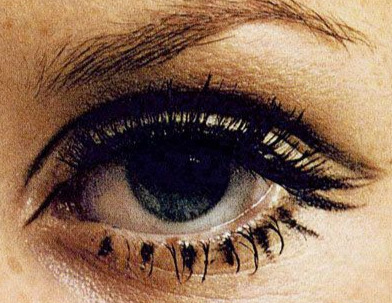



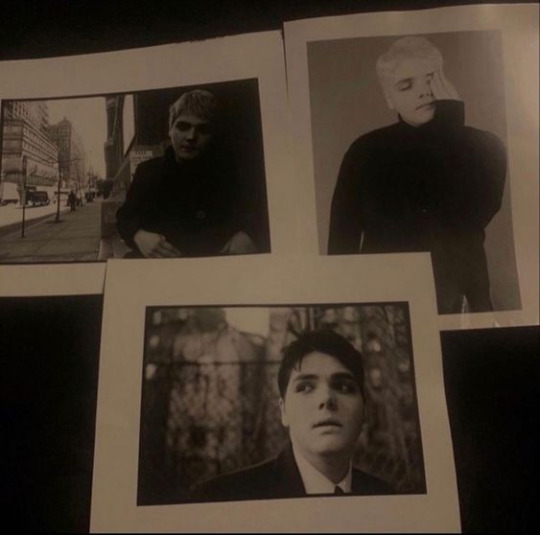

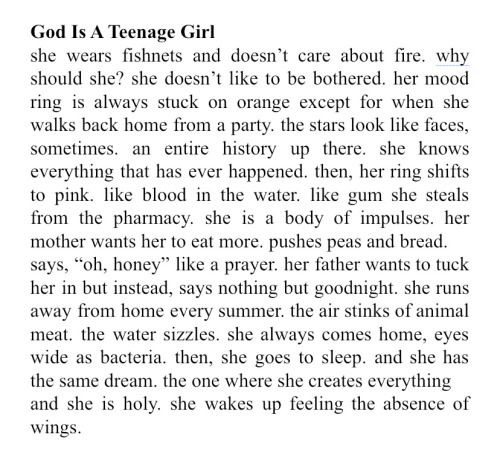


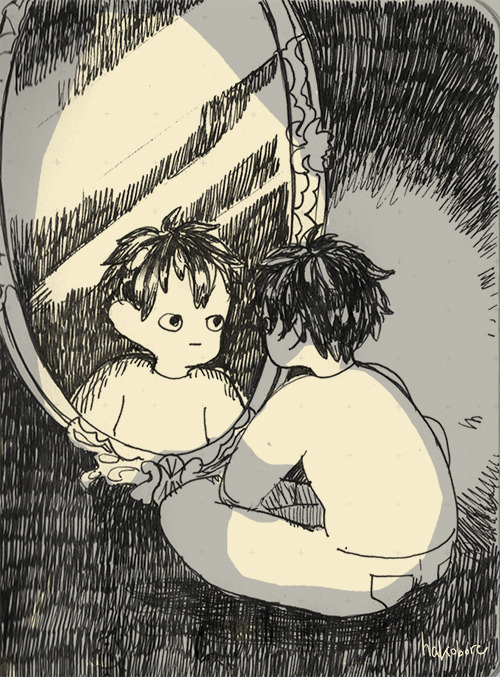


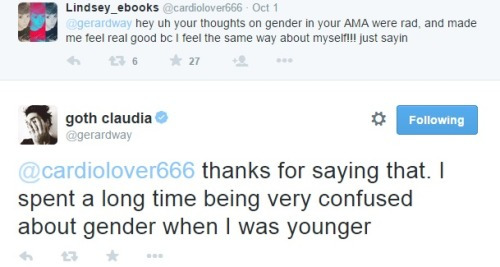
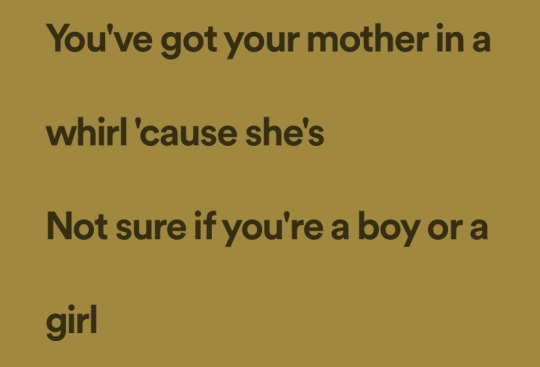


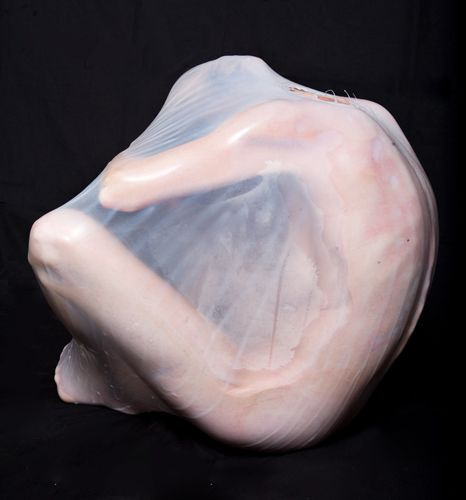





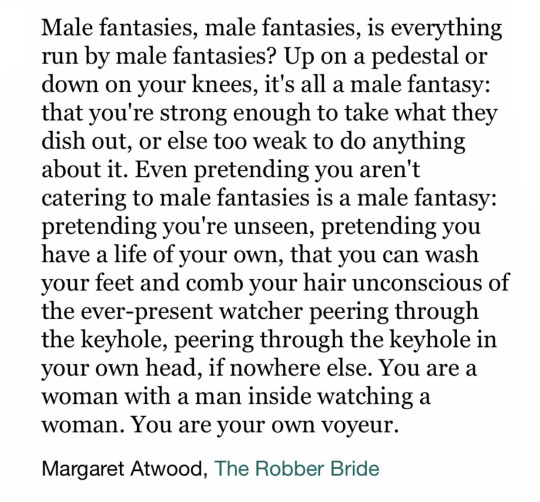


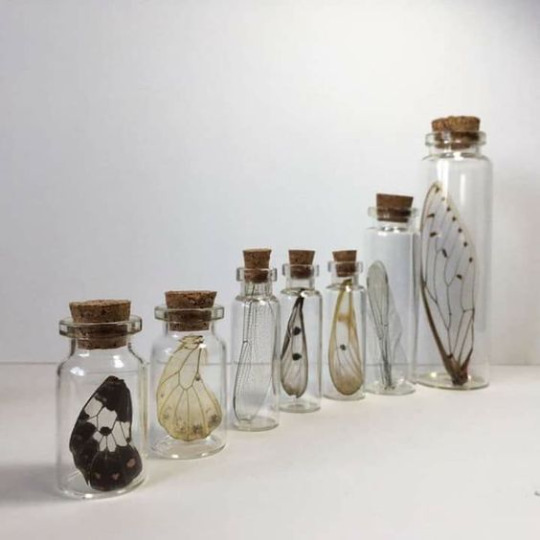
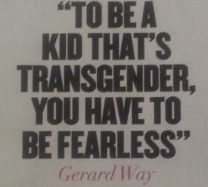
(i got inspiration to do this from @girlgerard's entire blog pretty much, so for sure go check him out if you haven't already, she's the best)
the very hungry caterpillar, eric carle / drugstore perfume, gerard way / bury me in black, my chemical romance / drowning lessons, my chemical romance / photo by it girl_rag doll on flickr / pinterest / bury me in black, my chemical romance / phoning it in, gerard way / gerard way in art school / pinterest / @americansport / pinterest / pinterest / @hakobore / gerard way circa 2004 / doris salcedo / tweet from gerard way following his ama on reddit / rebel rebel, david bowie / silas denver melvin / chopinspree on ig / bubbles, courtney starrett / @gaygothgenderconfused / f.t.w.w.w., my chemical romance / thomas beatie / i eat boys, chloe moriondo / sam smith preforming / margaret atwood / vampires will never hurt you, my chemical romance / pinterest / pinterest / gerard way for kerrang!
#gender gerard#gerard way gender wars#gerard gender archives#gender#gerard of arc#gerardcore#gerard way#poetry#web weaving#boyzine#rebel girl#bikini kill#smells like teen spirit#nirvana#breasts and eggs#kawakami mieko#on a sunbeam#shame is an ocean i swim across#mary lambert#pinterest#boyhood#victory lap#riley alexis wood#miss world#hole#all hail me#veruca salt#super late bloomer#julia kaye#transgender dysphoria blues
68 notes
·
View notes
Text
The 'Bon Appétit' Test Kitchen and the Myth of the Happy Workplace
The Bon Appétit Test Kitchen and its so-called "cinematic universe" has been described as follows: a "bright spot" in a "sea of garbage," the "internet's favorite cooking show," a form of "Sunday therapy," "an unstoppable force," "meme gods," and even "a Green New Deal fantasy," whatever that means.
Every night, "I check in with the chefs at Bon Appétit like I’m catching up with old friends," Louis Peitzman wrote for Buzzfeed in 2018. Another piece from earlier this year claimed the secret to Bon Appétit's YouTube success was that "everyone is just so damn likable." And having been graced with the crew's presence at the company's "Best Weekend Ever" late last year, writer and Who? Weekly host Bobby Finger recalled, "I felt not just starstruck but crazy. I mean actually deranged!"
Those are just the fawning articles. The Test Kitchen also has fan-run meme pages, an official merch store, two subreddits, and two more devoted specifically to personality Brad Leone and Gourmet Makes star Claire Saffitz. Saffitz, the kitchen's most beloved host, has been described as "the internet's collective crush," about whom people say things like "I would die for Claire" and imitate for Halloween or TikTok fame.
Man Repeller reported late last year that the channel was the fastest-growing in YouTube's food space, with more than 40 million views per month and over 5 billion total minutes watched. It currently has 6 million subscribers. As its hordes of doting fans propped the Bon Appétit Test Kitchen on the highest pedestal, the magazine's staff turned into micro-celebrities, their interpersonal dynamics became objects of obsession, and overall, the workplace was seen as a wholesome culinary ideal. What the Test Kitchen's cult of celebrity obfuscated, however, is that the Test Kitchen is just that: a workplace, like that of any other large—and therefore likely imperfect, if not problematic—institution. So honestly, what did any of us expect?
twitter
As the world found out in industry-shaking fashion this week, the reality of the Test Kitchen isn't the bastion of good that its stans have willed it to be. Last weekend, writer Illyanna Maisonet posted an exchange with Editor-in-Chief Adam Rapoport in which he effectively told her that Puerto Rican food wasn't trendy enough for the magazine to cover, and it read as another example of the brand's diversity problem. On Monday, after writer Tammie Teclemariam posted an old photo of Rapoport and his wife Simone Shubuck dressed in costumes centered on Puerto Rican stereotypes (in the photo, which Shubuck captioned "#TBT me and my papi #boricua," Rapoport wears a silver chain and durag), staffers blew open the door on the company's toxic culture, which has been emotionally and financially unsupportive of people of color. Rapoport—who, amid claims of brownface, maintains that he did not color his skin for the image—resigned the same day.
As assistant food editor Sohla El-Waylly wrote on Instagram on Monday, not only was she hired for her role at the rate of $50,000 per year despite her 15 years of experience (and the high cost of living in New York, where the company is located), but she was "pushed in front of video as a display of diversity" and not even paid for those appearances. Per Buzzfeed, El-Waylly and other hosts of color weren't paid for their video work, which is arranged through contracts with Condé Nast Entertainment, while white video stars were compensated. As the floodgates burst open, Twitter users soon dug up drinks editor Alex Delany's old internet history, which included a 2013 Vine of him saying the F-slur, a Confederate flag cake he'd posted to Tumblr, and a series of sexist tweets.
A damning report from Business Insider on Wednesday showed how far the brand's problems extended. From conversations with 14 former and current staffers, writer Rachel Premack concluded that BA was a "locus for exclusion and toxicity." Ryan Walker-Hartshorn, Rapoport's assistant for close to three years and the only Black woman on staff, was repeatedly denied raises from her $35,300 base salary and treated by Rapoport like "the help," in her words. "There is a big difference in terms of how they monetarily value the white employees versus the people of color," El-Waylly told BI.
On YouTube, BA's channel landed at exactly the right time. Compared to other food channels, which increasingly felt over-produced, the Test Kitchen videos were less polished; they had more personality; and they made the filming and editing processes clear. BA's videos resonated philosophically as well. Saffitz's Gourmet Makes, in which she attempts to recreate popular processed foods, is visibly an arduous and frustrating multi-day process, and at Mashable, Morgan Sung described Saffitz's series as an example of "probably the healthiest, most productive way to approach issues," while Quartz called her the "ultimate life coach."
Though the Test Kitchen's transformation into a celebrity force has been good for business, it's also set things up for exactly the reckoning that's happening now.
As with the recent situation involving Alison Roman (who got her start at BA), Chrissy Teigen, and Marie Kondo, the Test Kitchen's growing popularity and prestige outside the insular food world has complicated our ability to talk about its issues with clarity. Just as the bigger conversation about Roman and who tends to profit from cooking global food (the answer: white cooks) was largely portrayed as just a celebrity "Twitter feud," the changes at BA have been framed as the oversimplified result of a "brown face photo sparking anger" or the resurfacing of a "racially insensitive photo." The celebrity culture of the Test Kitchen begets the treatment celebrities get at gossip rags: reductive, lacking in nuance, and sounding the alarm for critics of "cancel culture." It's more than that, though.
The Test Kitchen's gargantuan online presence overrode its offline truth, as it projected and leaned into what people wanted to see, which was an Office-esque sitcom in which a friendly band of coworkers snickers behind the bumbling boss's back. As writer James Factora suggested in a tweet preceding all of this, perhaps the Test Kitchen's popularity is related to the widespread obsession with The Office. While Factora's tweet reads tongue-in-cheek, it's not wrong, and the love for the show perpetuated the illusion that a toxic workplace can be laughed at and lived with.
The Office has funny moments, but in a way, it led society astray. It suggested that a bad boss who makes clumsy, insensitive comments and makes life hard for employees can be a point of humor, instead of a toxic presence that could be booted. Who does that benefit except bosses? As BA turned the Test Kitchen into essentially its own sitcom, with each cooking star becoming an Office-esque talking head, it furthered the false notion of the perfect workplace, and people online were quick to gobble it up. The interactions between co-workers, even when off-putting, became meme fodder and pushed stans to throw their support behind their chosen star.
The idea that everything gets bad once it gets big sounds like a line ripped from Portlandia, but it is a maxim that applies to everything from emo bands to hashtags to dog breeds to cooking hosts. The higher the platform we give something, the more it can fall, and the discourse around the Test Kitchen seemed unprecedented in its fawning, at least within the food sphere. (Though we might have learned from situations like the downfall of Mario Batali.)
When we laud any product or person to this extent and make it an object of cultural obsession, it becomes easier to ignore the flaws and the parts of the conversation that don't fit what we want to see. This is true for the Test Kitchen, which could never really have met the inflated expectations of goodness that stan culture built up around it; people saw the perfect workplace because they wanted a perfect workplace. The problems at BA are institutional, but stan culture allowed people to compartmentalize the Test Kitchen as something separate and authentic.
In response to all of this, BA's parent company Condé Nast—a 111-year-old company with 6,000 employees globally at the start of this year—has announced that it will be "accelerating" its first ever diversity and inclusion report. On Tuesday, Amanda Shapiro, the editor of BA's Healthyish spinoff, became the brand's acting deputy director, and on Wednesday, the editors of BA said in a statement, "We want to be transparent, accountable, and active as we begin to dismantle racism at our brands."
Still, former staffers have identified Shapiro and other remaining BA employees as complicit in "toxic" behaviors. Despite calls for Matt Duckor, Condé Nast's head of programming for lifestyle and style, to step down over the unfair pay system and his mocking tweets about the gay community, he remains employed, as does Alex Delany. Both of them have issued social media apologies. With this new context, though, the joking tweets and fawning memes about the Test Kitchen don't hold up as well.
No surprise, Test Kitchen stans have responded to this all with even more memes and lionizing statements: "Update: we went to war for Sohla from the Bon Appétit test kitchen," reads one popular tweet. The height of the pedestal hasn't changed, though who's on the pedestal has. But as Bon Appétit changes, will its fan culture change also? To grapple with all of this new knowledge, it should.
Follow Bettina Makalintal on Twitter.
via VICE US - undefined US VICE US - undefined US via Mom's Kitchen Recipe Network Mom's Kitchen Recipe Network
0 notes
Text
The 'Bon Appétit' Test Kitchen and the Myth of the Happy Workplace
The Bon Appétit Test Kitchen and its so-called "cinematic universe" has been described as follows: a "bright spot" in a "sea of garbage," the "internet's favorite cooking show," a form of "Sunday therapy," "an unstoppable force," "meme gods," and even "a Green New Deal fantasy," whatever that means.
Every night, "I check in with the chefs at Bon Appétit like I’m catching up with old friends," Louis Peitzman wrote for Buzzfeed in 2018. Another piece from earlier this year claimed the secret to Bon Appétit's YouTube success was that "everyone is just so damn likable." And having been graced with the crew's presence at the company's "Best Weekend Ever" late last year, writer and Who? Weekly host Bobby Finger recalled, "I felt not just starstruck but crazy. I mean actually deranged!"
Those are just the fawning articles. The Test Kitchen also has fan-run meme pages, an official merch store, two subreddits, and two more devoted specifically to personality Brad Leone and Gourmet Makes star Claire Saffitz. Saffitz, the kitchen's most beloved host, has been described as "the internet's collective crush," about whom people say things like "I would die for Claire" and imitate for Halloween or TikTok fame.
Man Repeller reported late last year that the channel was the fastest-growing in YouTube's food space, with more than 40 million views per month and over 5 billion total minutes watched. It currently has 6 million subscribers. As its hordes of doting fans propped the Bon Appétit Test Kitchen on the highest pedestal, the magazine's staff turned into micro-celebrities, their interpersonal dynamics became objects of obsession, and overall, the workplace was seen as a wholesome culinary ideal. What the Test Kitchen's cult of celebrity obfuscated, however, is that the Test Kitchen is just that: a workplace, like that of any other large—and therefore likely imperfect, if not problematic—institution. So honestly, what did any of us expect?
twitter
As the world found out in industry-shaking fashion this week, the reality of the Test Kitchen isn't the bastion of good that its stans have willed it to be. Last weekend, writer Illyanna Maisonet posted an exchange with Editor-in-Chief Adam Rapoport in which he effectively told her that Puerto Rican food wasn't trendy enough for the magazine to cover, and it read as another example of the brand's diversity problem. On Monday, after writer Tammie Teclemariam posted an old photo of Rapoport and his wife Simone Shubuck dressed in costumes centered on Puerto Rican stereotypes (in the photo, which Shubuck captioned "#TBT me and my papi #boricua," Rapoport wears a silver chain and durag), staffers blew open the door on the company's toxic culture, which has been emotionally and financially unsupportive of people of color. Rapoport—who, amid claims of brownface, maintains that he did not color his skin for the image—resigned the same day.
As assistant food editor Sohla El-Waylly wrote on Instagram on Monday, not only was she hired for her role at the rate of $50,000 per year despite her 15 years of experience (and the high cost of living in New York, where the company is located), but she was "pushed in front of video as a display of diversity" and not even paid for those appearances. Per Buzzfeed, El-Waylly and other hosts of color weren't paid for their video work, which is arranged through contracts with Condé Nast Entertainment, while white video stars were compensated. As the floodgates burst open, Twitter users soon dug up drinks editor Alex Delany's old internet history, which included a 2013 Vine of him saying the F-slur, a Confederate flag cake he'd posted to Tumblr, and a series of sexist tweets.
A damning report from Business Insider on Wednesday showed how far the brand's problems extended. From conversations with 14 former and current staffers, writer Rachel Premack concluded that BA was a "locus for exclusion and toxicity." Ryan Walker-Hartshorn, Rapoport's assistant for close to three years and the only Black woman on staff, was repeatedly denied raises from her $35,300 base salary and treated by Rapoport like "the help," in her words. "There is a big difference in terms of how they monetarily value the white employees versus the people of color," El-Waylly told BI.
On YouTube, BA's channel landed at exactly the right time. Compared to other food channels, which increasingly felt over-produced, the Test Kitchen videos were less polished; they had more personality; and they made the filming and editing processes clear. BA's videos resonated philosophically as well. Saffitz's Gourmet Makes, in which she attempts to recreate popular processed foods, is visibly an arduous and frustrating multi-day process, and at Mashable, Morgan Sung described Saffitz's series as an example of "probably the healthiest, most productive way to approach issues," while Quartz called her the "ultimate life coach."
Though the Test Kitchen's transformation into a celebrity force has been good for business, it's also set things up for exactly the reckoning that's happening now.
As with the recent situation involving Alison Roman (who got her start at BA), Chrissy Teigen, and Marie Kondo, the Test Kitchen's growing popularity and prestige outside the insular food world has complicated our ability to talk about its issues with clarity. Just as the bigger conversation about Roman and who tends to profit from cooking global food (the answer: white cooks) was largely portrayed as just a celebrity "Twitter feud," the changes at BA have been framed as the oversimplified result of a "brown face photo sparking anger" or the resurfacing of a "racially insensitive photo." The celebrity culture of the Test Kitchen begets the treatment celebrities get at gossip rags: reductive, lacking in nuance, and sounding the alarm for critics of "cancel culture." It's more than that, though.
The Test Kitchen's gargantuan online presence overrode its offline truth, as it projected and leaned into what people wanted to see, which was an Office-esque sitcom in which a friendly band of coworkers snickers behind the bumbling boss's back. As writer James Factora suggested in a tweet preceding all of this, perhaps the Test Kitchen's popularity is related to the widespread obsession with The Office. While Factora's tweet reads tongue-in-cheek, it's not wrong, and the love for the show perpetuated the illusion that a toxic workplace can be laughed at and lived with.
The Office has funny moments, but in a way, it led society astray. It suggested that a bad boss who makes clumsy, insensitive comments and makes life hard for employees can be a point of humor, instead of a toxic presence that could be booted. Who does that benefit except bosses? As BA turned the Test Kitchen into essentially its own sitcom, with each cooking star becoming an Office-esque talking head, it furthered the false notion of the perfect workplace, and people online were quick to gobble it up. The interactions between co-workers, even when off-putting, became meme fodder and pushed stans to throw their support behind their chosen star.
The idea that everything gets bad once it gets big sounds like a line ripped from Portlandia, but it is a maxim that applies to everything from emo bands to hashtags to dog breeds to cooking hosts. The higher the platform we give something, the more it can fall, and the discourse around the Test Kitchen seemed unprecedented in its fawning, at least within the food sphere. (Though we might have learned from situations like the downfall of Mario Batali.)
When we laud any product or person to this extent and make it an object of cultural obsession, it becomes easier to ignore the flaws and the parts of the conversation that don't fit what we want to see. This is true for the Test Kitchen, which could never really have met the inflated expectations of goodness that stan culture built up around it; people saw the perfect workplace because they wanted a perfect workplace. The problems at BA are institutional, but stan culture allowed people to compartmentalize the Test Kitchen as something separate and authentic.
In response to all of this, BA's parent company Condé Nast—a 111-year-old company with 6,000 employees globally at the start of this year—has announced that it will be "accelerating" its first ever diversity and inclusion report. On Tuesday, Amanda Shapiro, the editor of BA's Healthyish spinoff, became the brand's acting deputy director, and on Wednesday, the editors of BA said in a statement, "We want to be transparent, accountable, and active as we begin to dismantle racism at our brands."
Still, former staffers have identified Shapiro and other remaining BA employees as complicit in "toxic" behaviors. Despite calls for Matt Duckor, Condé Nast's head of programming for lifestyle and style, to step down over the unfair pay system and his mocking tweets about the gay community, he remains employed, as does Alex Delany. Both of them have issued social media apologies. With this new context, though, the joking tweets and fawning memes about the Test Kitchen don't hold up as well.
No surprise, Test Kitchen stans have responded to this all with even more memes and lionizing statements: "Update: we went to war for Sohla from the Bon Appétit test kitchen," reads one popular tweet. The height of the pedestal hasn't changed, though who's on the pedestal has. But as Bon Appétit changes, will its fan culture change also? To grapple with all of this new knowledge, it should.
Follow Bettina Makalintal on Twitter.
via VICE US - undefined US VICE US - undefined US via Mom's Kitchen Recipe Network Mom's Kitchen Recipe Network
0 notes